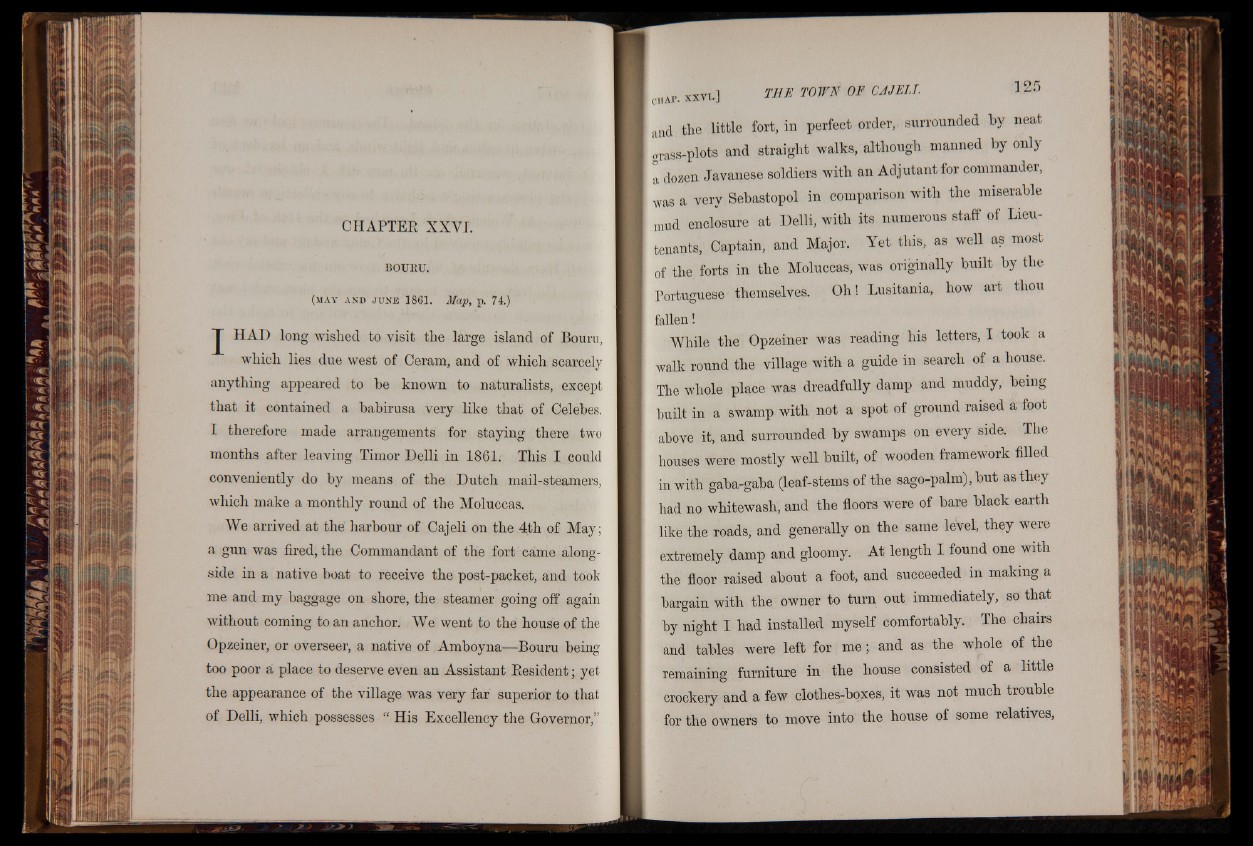
CHAPTER XXVI.
BOURU.
(m a y a n d j u n e 1861. Map, p. 74.)
HAD long wished to visit the large island of Bouru,
which lies due west of Ceram, and of which scarcely
anything appeared to he known to naturalists, except
that it contained a babirusa very like that of Celebes.
I therefore made arrangements for staying there two
months after leaving Timor Delli in 1861. This I could
conveniently do by means of the Dutch mail-steamers,
which make a monthly round of the Moluccas.
We arrived at the harbour of Cajeli on the 4th of May;
a gun was fired, the Commandant of the fort came alongside
in a native boat to receive the post-packet, and took
me and my baggage on shore, the steamer going off again
without coming to an anchor. We went to the house of the
Opzeiner, or overseer, a native of Amboyna—Bouru being
too poor a place to deserve even an Assistant Resident; yet
the appearance of the village was very far superior to that
of Delli, which possesses “ His Excellency the Governor,”
and the little fort, in perfect order, surrounded by neat
grass-plots and straight walks, although manned by only
a dozen Javanese soldiers with an Adjutant for commander,
was a very Sebastopol in comparison with the miserable
mud enclosure at Delli, with its numerous staff of Lieutenants,
Captain, and Major. Yet this, as well as most
of the forts in the Moluccas, was originally built by the
Portuguese themselves. Oh! Lusitania, how art thou
fallen!
While the Opzeiner was reading his letters, I took a
walk round the village with a guide in search of a house.
The whole place was dreadfully damp and muddy, being
built in a swamp with not a spot of ground raised a foot
above it, and surrounded by swamps on every side. The
houses were mostly well built, of wooden framework filled
in with gaba-gaba (leaf-stems of the sago-palm), but as they
had no whitewash, and the floors were of bare black earth
like the roads, and generally on the same level, they were
extremely damp and gloomy. At length I found one with
the floor raised about a foot, and succeeded in making a
bargain with the owner to turn out immediately, so that
by night I had installed myself comfortably. The chairs
and tables were left for me; and as the whole of the
remaining furniture in the house consisted of a little
crockery and a few clothes-boxes, it was not much trouble
for the owners to move into the house of some relatives,